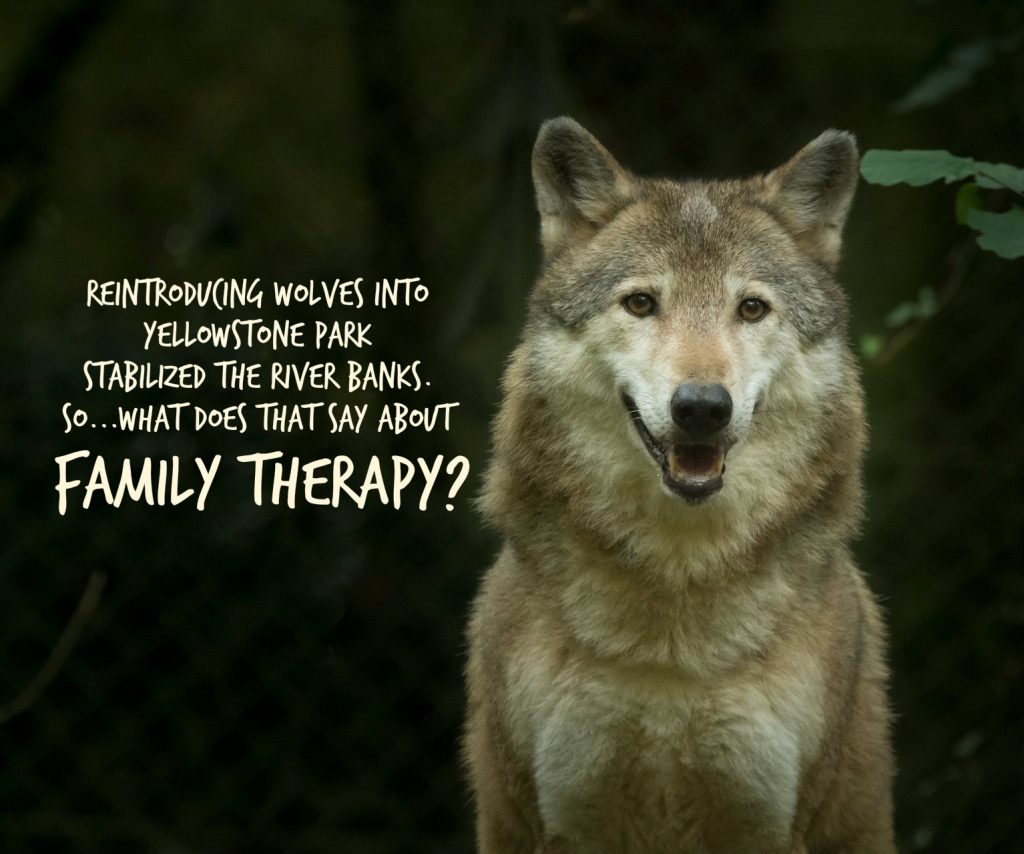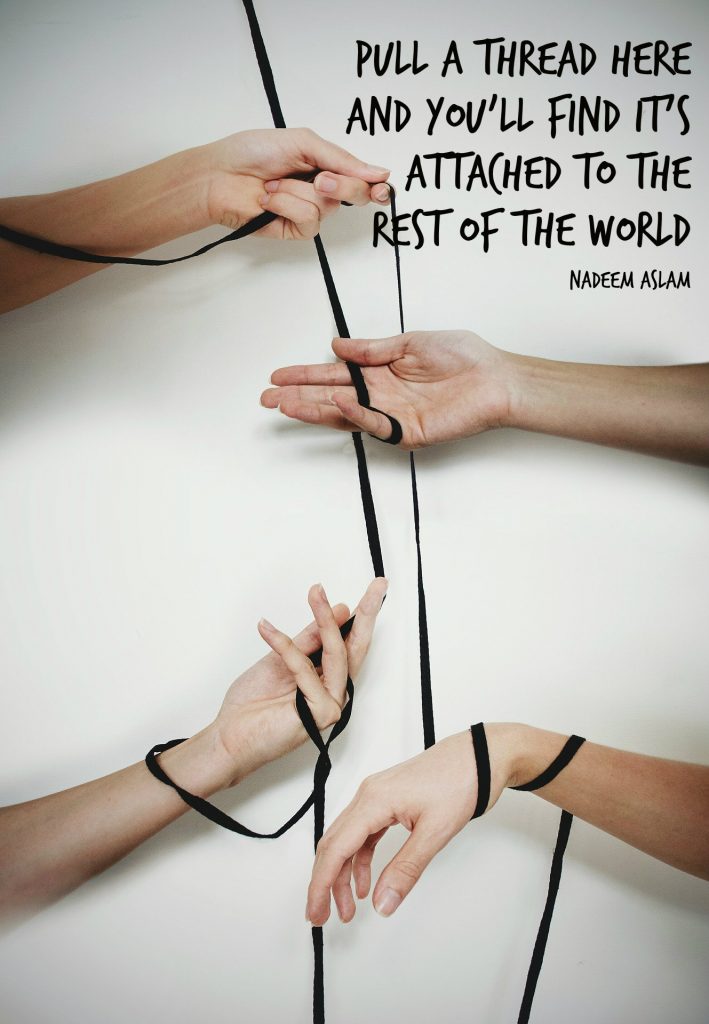I often hear someone refusing to come to counselling because they don’t have the problem:
- “If I’m not the rebellious one, why would I need counselling?”
- “He’s the one that drinks, not me. He needs counselling, not me!”
- “My wife is the one that lost her parents in the accident. I don’t need help.”
- “The problem doesn’t start with me, counselling won’t help.”
- “It’s not my fault!”
Therapists don’t see it that way.
Therapists don’t look to fix the problem, or fix the person with the problem, or even work to figure out who has “the problem”. Therapists don’t look to blame. There’s an important reason, on some level, why a behaviour is occurring in a person in the family.
Us therapists know that blaming one person or one factor oversimplifies the issues. It doesn’t work. It’s not fair.
Therapists understand that an action or behaviour rarely arises in isolation. Most things that happen within a family are a reaction to multiple complex factors.
Frequently, in therapy, as we dig down to understand the multiple cause and effect relationships, we look to address one factor which then affects another.

Nature teaches us a lot about how changing one factor impacts an entire system.
Take a quick peek at what happened when wolves were reintroduced to Yellowstone Park:
Isn’t it remarkable how the reintroduction of wolves into the park stabilized the banks of the river? How birds and reptiles appeared because wolves came onto the scene?
Would anyone have thought to say, “Gee, we want there to be more pooling of the water in Yellowstone. Why don’t we re-introduce wolves into the park to make that happen?”
Family therapists are “systems” therapists…and we know that often, when you change something over here, it impacts something over there…which in turn affects something in a completely different area.
This is how a system works:
- A father comes to therapy and realizes he is not as active a father as he wants to be. He becomes more engaged with his children, working less hours and taking over driving his kids to and from soccer. As a result, his wife has a chance to catch up on some overdue work assignments with the extra time. She starts to sleep better because her stress levels go down. Because she is less exhausted, the couple begins to have sexual intercourse more often. The couple experiences increased closeness. As the couple begins to be warmer and closer with each other, the children feel more secure in their family and the parents find that the children are more cooperative than they had been.
- A boss takes the Rising Strong course to work through a huge proposal that his entire department worked hard hard at to secure the account–he is devastated they didn’t get it. He rewrites his story, and focuses on the learnings that came out of the experience. He goes back into work with a renewed sense of energy and optimism. He is calm and empowering of others. Now, the other major proposal the department is working on gets new life, and this time…they get the account! Because they get the account, they don’t have to lay off the two staff that they thought would have to be let go. The children of those staff get to go to summer camp because their parents can now afford the fees.
It is remarkable how our work in the counselling room has ripple effects on people who encounter our clients.

As they work towards greater wholeheartedness in their own lives, they begin to impact the lives of others. As people relate to themselves differently, they make different choices as they relate to others…and others find space to relate differently, too!
A lot of our clients don’t tell a lot of people they are going for counselling…but people notice that they:
- don’t get angry as quickly,
- don’t allow people to take advantage of them,
- take risks to be vulnerable in relationships.
And that changes how the people around them react and interact.
So…you may be surprised at the ways people in your life who may never know that you have done your own personal work will be impacted by the changes in who you are.
The wolves changed the rivers at Yellowstone Park.
For reals.
Often, people feel stuck as the people in their lives drink too much, work too much, pull away. They panic when they see the lives of their children swirling around the toilet bowl…and they feel helpless.
- Sometimes that helpless feeling has them throw their hands up give up…right around the time the children wonder if anybody cares about them. And your despair zigs where their feeling uncared for zags…and it gets worse.
- Sometimes that helpless feeling has people push, beg, and pursue relentlessly. And every step forward you take in an effort to grab the person back, only has them pull another step farther away…and it gets worse.
In times of watching someone in your life struggle and feel helpless, a person often forgets that they themselves somehow participate in the system. Changing your role in the system may not “fix the problem”, but often things can’t stay the same when one person changes the system by being different in it. Not easy…often terrifying.
But worth considering…what might happen to the other players in your system if you change your role?






Write a Comment